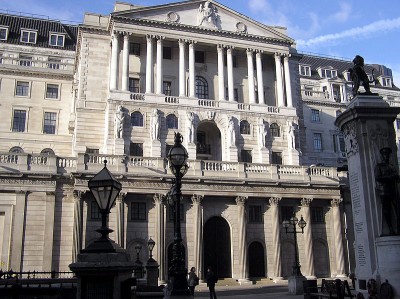The Governing Council of the ECB decided that main interest rates will remain unchanged. The reasons behind the decision were such facts as the repayment of 22% of the LTRO program, which reflects an increase in financial market confidence, weak GDP outcomes in 2012, and anchored inflation with estimation of 1.8% in February.
The Bank of England held its target for bond purchases at $ 564 billion, or, in other words, the bank policy did not change as well. The policy could be changed by the new coming governor of the bank, Mark Carney. David Cameron already called for a new monetary activism of the BoE, which must support recovery of the country, and which probably means that the BoE will purchase government bonds on bigger pace than today.
It seems that the strong German hands will lose its squeeze. Italy’s election, France’s refusal to make budget cuts and anti-austerity protests across southern Europe; these are just a few reasons why rules crumble like a house of cards. And the wording behind it is excellent. “If our rules are intelligent, they are also flexible. We have to find the right rhythm and the right balance without weakening the little growth left,” said French Finance Minister or “We must leave the austerity cage,” said Pier Luigi Bersani responding to Italy’s election outcome by upending his pre-election program. It is more than clear that we have two blocks in the EU – the austerity block, lead by Germans supported by Finland, Austria or Luxemburg, and the anti-austerity block, lead by France supported by Spain, Italy, and Portugal. Who will win? What do you think?
The Fitch has downgraded Italy from ‘A-‘ to ‘BBB+’ with negative outlook, which could also have future impact on the ESM rating because Italy is one of the shareholders. The reasons behind were election outcome, and consequently higher probability of week government reactions to economic shock, recession in Italy and Europe, and an estimate of bigger debt close to or over 130 % of GDP.
What is the most dangerous investment in China? Housing project. Do people of China realize that? Of course not. The situation of the real estate market in China has started to be on the radar of mainstream media and rightfully so. China building industry represents 20-30% of the whole economy. They are able to build 12 to 24 new cities every single year. It was the government that has spent more than $2 trillion to get these cities built. The outcome? Emptiness. And if you want to see how empty shopping malls, apartments, or whole cities look like, just watch video below:
http://www.cbsnews.com/video/watch/?id=50142079n
There is one crucial point in the video. The bursting of the bubble is described in the same way as the so called Austrian school explains the business cycle as a malinvestment process. New investments are not finished because of lack of funds, which slowly caused bigger unemployment and first bankruptcies.
The new governor of Bank of Japan meets the expectations and maybe goes beyond. On Monday he introduced what he described as monetary easing. He said that the BOJ’s current policies were not powerful enough to boost inflation to 2% and he thinks that the best way to ramp up the central bank’s stimulus for the economy would be through huge purchases of longer-dated government bonds as soon as possible without waiting for the scheduled start date of 2014. If Kuroda’s nomination is approved, his first regularly scheduled policy review would be on April 3-4, so until that day we could just speculate about real monetary measures of the BoJ.
The U.S. nonfarm payroll employment increased by 236,000 in February (more than expectations 165,000), and the unemployment rate was down to 7.7% according to the U.S. Bureau of Labor Statistics. This has been the lowest unemployment rate since December of 2008. And Americans must be absolutely appeased now. It is more than just better unemployment data. The U.S. largest bank companies have passed hypothetical stress tests. They are allegedly in a much stronger position than before the financial crisis. The stress tests consist of scenarios such as unemployment rate of 12.1%, a 50% drop in equity prices, 20% decline in housing prices or projected loses of a total of $462 billion during the nine quarters of the hypothetical stress scenario. But hopefully they will not experience the scenario in reality very soon.



